
Rooting your Android device gives you more benefits these days than it did before, as long as you’re rooting it with the Magisk systemless framework. Not only can Magisk bypass the SafetyNet, but it also provides you with the option to install numerous modules. These modules have specific functionality. Here we list no less than 17 of the best Magisk modules for rooted Android devices running Pie and Android 10 in 2019. These Magisk modules work great with Android Oreo too.
If you’ve rooted an Android device recently, you’ve most probably heard of Magisk. It’s the most popular rooting solution currently for Android devices, overtaking Chainfire’s SuperSU. Magisk is a systemless method of rooting, which means it doesn’t change anything in the system partition. Thus, a device properly rooted with Magisk can pass Google’s Safety Net checks. The Safety Net is used by several apps such as Netflix, Pokemon Go, banking apps, etc. in order to stop usage on rooted devices. Magisk has another big advantage over SuperSU, support for Magisk modules. Magisk is pretty much a systemless Xposed.
Although to be fair, Magisk doesn’t even have half the number of modules that the Xposed framework probably does. Yet, there are many Magisk modules out there, many of them not even in the official repositories. In fact, you can even install Xposed systemlessly via Magisk. We’ve previously mentioned some Magisk modules that might come in handy if you’re just getting started. If you’re new though, you might want to take a look at how to install Magisk. Today, we’ll take a look at some of the best Magisk modules that you must download and try
1. Magisk Manager for Recovery Mode
Sometimes, some magisk modules may not agree with your device, causing it to fall into a boot loop. Your only solution then remains to somehow uninstall that magisk module or Magisk entirely, or worse, format your device. Neither of them except the first one are very happy scenarios. If you’re someone like me you have a ton of Magisk modules installed and you don’t remember all the names.
Magisk Manager for Recovery Mode is a popular module for such scenarios. Although, you’d want to have it installed before any such thing happens. You can find it in the Magisk repository. As for how to use it, check out its XDA thread.
2. EdXposed – Popular Magisk Module for Xposed Framework
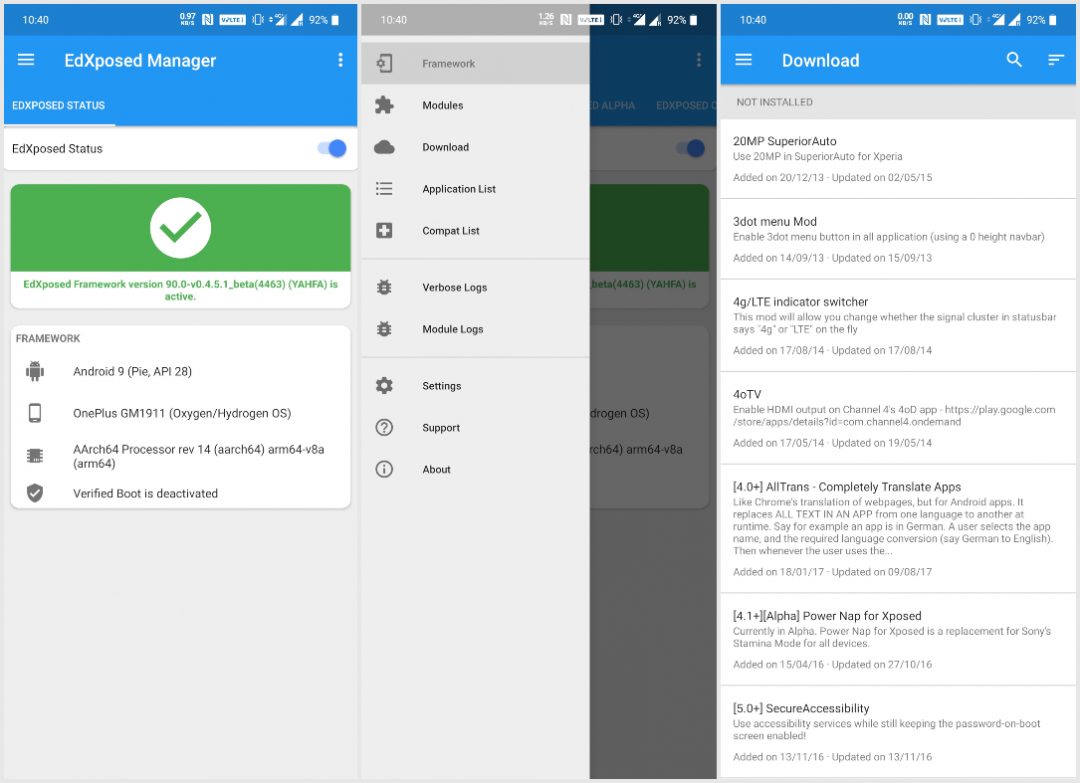
Magisk is great but Xposed Framework still has no real alternative if you’re into modding every detail about your Android device. The Xposed repositories are home to such a huge number of modules that it’s virtually a mod store in itself. Not long ago, Xposed Framework used to be the sole reason or at least a big reason for users to root their smartphones.
After development seemingly came to a halt due to several changes introduced with Android Marshmallow, the fan following may have gone down a little but there is still a thriving community behind the project.
EdXposed is an unofficial port for Xposed Framework for Android Pie devices. It can be systemlessly installed as a Magisk module via the download section in Magisk Manager. However, it does have some requirements and needs another Magisk module to work. You should check out our Xposed tutorial for installing it. It’s an awesome module and that’s why we listed it in our list of the best Magisk modules available for rooted Android devices.
3. Volume Steps Plus
By default, Android only allows 15 steps between the minimum and maximum volume unless your OEM or custom ROM changes it. This can be limiting because some people might feel the jump from one step to another is too large. The effect is even more pronounced with headphones. So this Magisk module becomes a popular must-have for such people.
You can download it from its GitHub page.
4. Viper4Android FX – Popular Audio Mod Magisk Module
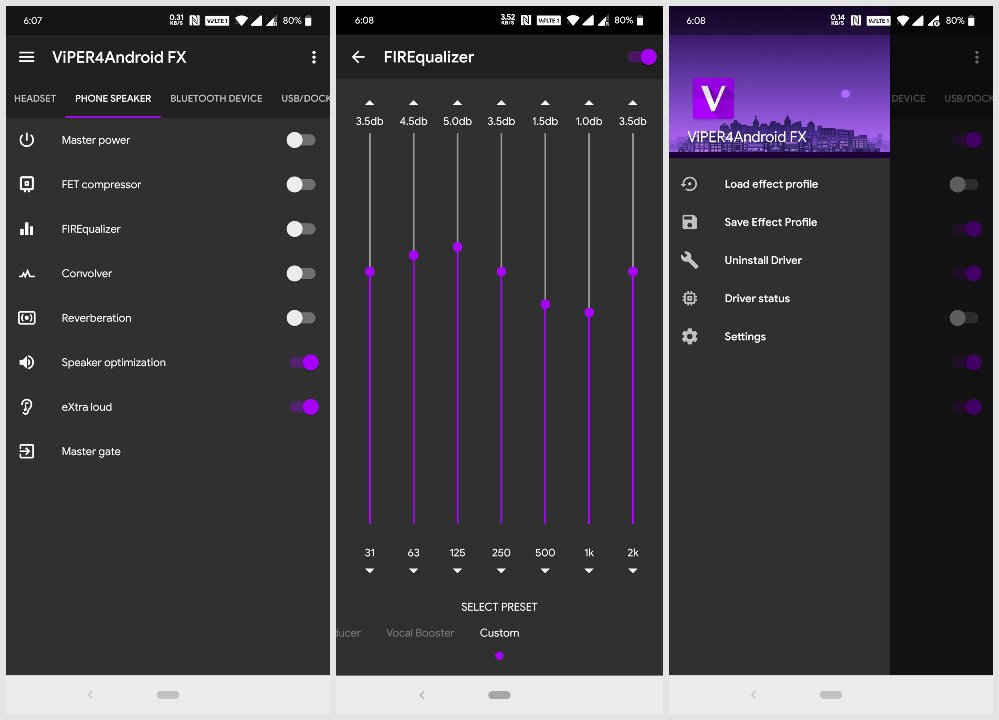
Viper4Android FX works with every Android device running Android 4.2 and above. Once installed and activated, you can enable the eXtra loud toggle to boost the maximum volume of your speakers. Unlike other apps, it also has another option called Speaker optimization which makes sure your speaker isn’t damaged by the boost in volume.
That’s just the crust of it. Viper4Android holds so many tweaks, sliders, and dials inside that will let you fine-tune your audio to an extent no other sound mod allows. More importantly, the changes made by it are felt much more clearly than other apps. These changes are also global, and you don’t have to worry about the app getting stopped in the background.
A slight annoyance on some phones may be that it also boosts the touch sounds if you have them enabled. In the Magisk Manager Downloads section, you can find at least three different versions of Viper4Android, so make sure you install Viper4Android FX, although the others work as well. This is one of the best Magisk modules for audiophiles.
5. CloudflareDNS4Magisk – Popular DNS Magisk Module
Cloudflare DNS can help you bypass censorship which is really helpful in countries like China, Turkey, Pakistan Venezuela, and now even India. These countries have been known to block news outlets, social networks, and adult websites. An alternative DNS solution helps you overcome that restriction. Although an alternative DNS service can be used on Android devices, the process isn’t very straight-forward. Or at least, it wasn’t until Android Pie arrived.
Not only that but it prevents ISP’s from tracking your online activities. To be fair, you’re simply giving that power to Cloudflare instead. In any case, if you trust them enough, you can find the CloudflareDNS4Magisk module in the Downloads section of the Magisk Manager app.
Although, they do have an app and Android Pie users can even simply add it from the Settings.
6. Camera2API enabler
One of the features the Pixel Experience magisk module enables on your device, if possible, is the camera2API. Some Android OEMs don’t enable it by default, even though the hardware supports it. Whatever their reasons, in order to install a Google Camera port that works, Camera2API is necessary. So this module enables just that for you.
You can do this manually by editing the build.prop file but installing this module is a tad bit easier. You can download it from its XDA thread.
7. YouTube Vanced Magisk Module – Popular YouTube Magisk Module

YouTube Vanced is a modded version of the YouTube app, packaged into a Magisk module which can be installed as a system app. This modded version of YouTube brings a lot of the sought after YouTube features that Google currently offers only to YouTube Red subscribers. Unlike a Netflix subscription though, YouTube Red cannot sell itself based on content.
So Google requires users to have a Red subscription in order to enjoy basic features such as Picture-in-Picture. YouTube Red is why you cannot even enjoy background playback on the YouTube app. This module solves all those problems and more. You can override video resolution limits, use the pinch-to-zoom gesture, use dark mode and automatically play videos on repeat. We’ve covered YouTube Vanced in greater detail before too.
You can download this great Magisk module via the Magisk Manager.
8. Universal GSM Doze
If you’ve ever used a device without any Google apps, including Google play services, Play Store, etc. you’ll know these devices generally have much better battery life. That’s because Google Play Services and other apps that are part of GMS (Google Mobile Suite) are exempted from Android’s battery-saving features.
This module takes care of that and makes sure the doze settings also apply to GMS apps. It is included in the Magisk repositories and can be downloaded from the Magisk Manager app.
9. App Systemizer
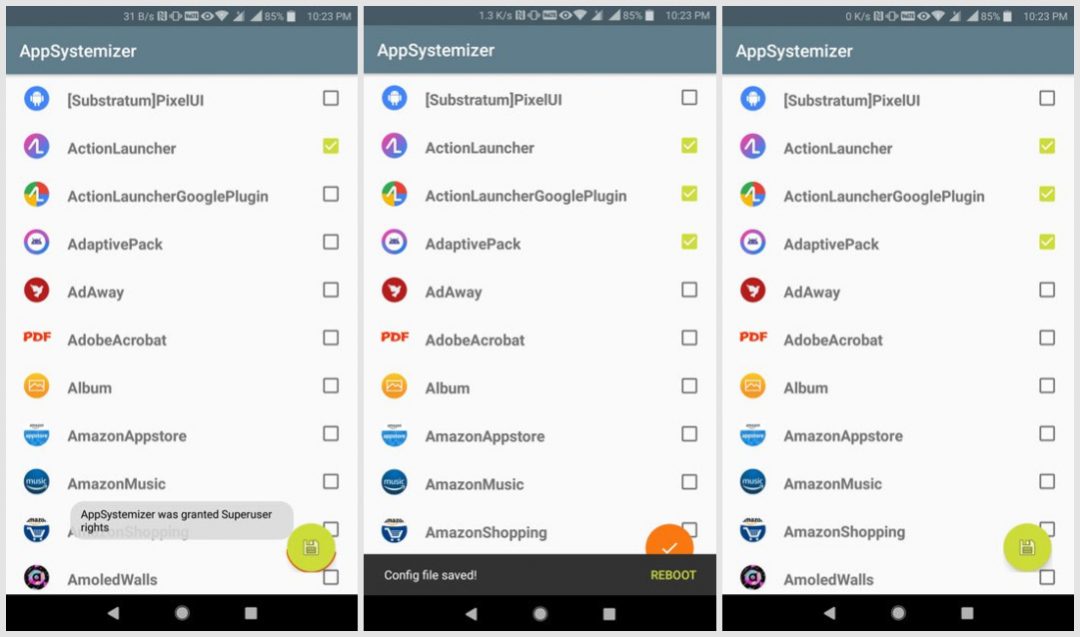
App Systemizer is one of the best Magisk modules that deserves a mention here. It does what its name says, although it may not still be very clear. What it does is, it allows you to systemize certain user apps. In other words, App Systemizer lets you turn user-installed apps into system apps. Why on earth would you want to do that? There can be various reasons actually.
The more common ones can be the elevated privileges enjoyed by system apps. Certain battery savers or similar apps that need to constantly run in the background perform better as system apps. Moreover, system apps cannot be uninstalled as easily as other apps. This adds a layer of security to some apps which can prove beneficial for app lockers.
The module has two versions one of which is a GUI version whereas the other works via a Terminal app. You’ll want to make sure you install the one with an interface. App Systemizer is available in the Magisk repository and can be easily downloaded via the Magisk Manager app.
10. Google Dialer Framework – Popular Magisk Module for Google Phone
Google keeps many apps exclusive for its Pixel devices, or at least tries to. A popular example is the Google Camera but another is the Google Phone app. It used to be available for all Android devices but not for long. Now it’s a Pixel exclusive with features exclusive to Pixel devices such as call screening.
This popular Magisk module brings the necessary framework to your Android device. This lets you easily download and install the Google Phone app from the Play Store. You can download it from the Magisk Manager app.
11. Sony Device Dummy
Google isn’t the only OEM to publish device exclusive apps to the Play Store. Sony has a few such apps on the Play Store that are quite in demand. Mostly, people want Sony Album and Music apps. While you can easily download ported versions from the internet, updating them is not as convenient as getting it directly from the Play Store.
Just as the Google Dialer Framework does for Google Phone, this module lets you download and install exclusive Sony apps from the Play Store and includes the necessary framework to get them working. The module is available for download from the Magisk Manager app.
12. xmplak – a road to vendor apps
Similarly, Motorola has some, Samsung has a few, etc. This little Magisk module lets you not only see these apps on the Play Store from any device but also install them. Many of these apps, such as the Google Dialer itself, require a specific framework. This includes Sony’s media apps.
So while you can download them, incompatible apps will still simply not work on your device.
13. Disable Screenshot and Camera sounds
Ever been in a silent room when you try to click a secret photo and the shutter sound makes everyone look at you awkwardly? On OnePlus devices, even the screenshot sound sounds like the shutter sound. Some OEMs allow these sounds to be muted, similarly, some custom ROMs do as well but not all.
This Magisk module, as the name says, does that. It replaces the respective sound files in the system/media folder with empty files. It can be found in the Downloads section of the Magisk Manager app.
14. Audio Modification Library – Popular Audio Framework Magisk Module
The Audio Modification Library Framework does not do anything in itself but provide a base for other developers to build their audio mods on top of. This means Magisk modules built utilizing the AudioModLib framework only will work without conflicting with other mods. Many popular audio mods are compatible with it. This includes names like ViPER4Android and Zirene Sound by AM3D. It’s a popular module and is available in the Magisk repos via the Magisk Manager app.
15. Pixel Experience Magisk Module
When it comes to Android devices, Samsung’s flagships reign supreme in terms of sales. But for us enthusiasts, Google’s Pixel is the king and this year’s crown rests with the Pixel 2. We’ve seen so many mods and efforts at porting the Google Pixel camera, the launcher, and other features. The Pixel Experience Magisk module brings all those mods under one roof. We’ve discussed the Pixel Experience module in detail before.
It brings the launcher, Camera2API, system audio, look and feel, themes, Google fonts, etc to your non-Pixel device. This one may not work on your Samsungs or LGs or any other heavily skinned Android devices. But if you have an Android device running stock, or a close to stock experience, Pixel Experience is one of the best Magisk modules you should definitely give a try.
During installation, you will be required to make a few choices so as to choose the version of the Pixel Launcher you want to install. This module is also available in the Magisk repos and can be easily installed using Magisk Manager.
16. ARISE Magnum Opus
It isn’t as popular as something like Viper4Android FX, but that doesn’t mean it is not better. ARISE Magnum Opus Sound Mod works with every Android device running Android 4.2 and above. In a nutshell, ARISE is a combination of all the best audio mods available. It also includes a slightly modified version of Viper4Android called Viper4Arise, as well as other mods such as Sony audio enhancements, AM3D Zerene, Dolby Atmos, etc. Users can choose which of these mods to install during the installation, so you won’t be filling up your device with mods you didn’t want.
The best part is none of these mods interfere with one another and can work together to deliver the best sound experience. We have already put up a detailed guide on how you can install ARISE on your device since the installation is not as straightforward. You can check it out by following the link below. ARISE Magnum Opus is one of the best Magisk modules you must try.
17. Xposed Framework
We mentioned it earlier, so you had to know this was coming. Magisk is great but Xposed Framework still has no real alternative if you’re into modding every detail about your Android device. The Xposed repositories are home to such a huge number of modules that it’s virtually a mod store in itself. Not long ago, Xposed Framework used to be the sole reason or at least a big reason for users to root their smartphones. After development seemingly came to a halt due to several changes introduced with Android Marshmallow, the fan following may have gone down a little but there is still a thriving community behind the project.
Xposed can be systemlessly installed as a Magisk module via the download section in Magisk Manager.
Don’t miss: 50 Best Apps for Rooted Android Devices
Magisk Modules Download and Installation Steps
- Open Magisk Manager.
- Swipe from the left edge of the screen to open the sidebar and select Downloads.
- You’ll now see a list of available Magisk modules. Tap one to read more information, including any additional instructions on how to install or use it. You’ll want to be careful here since not all Magisk modules are meant for every phone. Some are exclusive to devices from a certain manufacturer or even a specific device such as these modules for the OnePlus phones.
- To install a module, tap on the download icon next to its name. A popup will then appear giving you three choices of which you can choose one. Download saves the module to your phone’s storage, after which you’ll be required to manually install it and Install downloads and installs automatically.
- Select Install. The process doesn’t take too long, but it will depend on your internet speeds and the size of the module.
- Tap Reboot when prompted, and your phone will restart and the module will be working when it boots again.
If you think we missed some great Magisk module in our list, please let us know. Thanks!
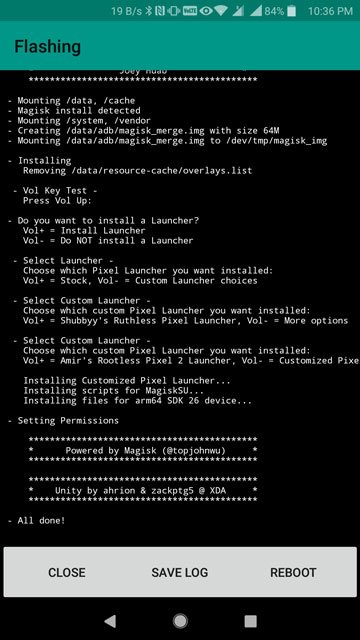



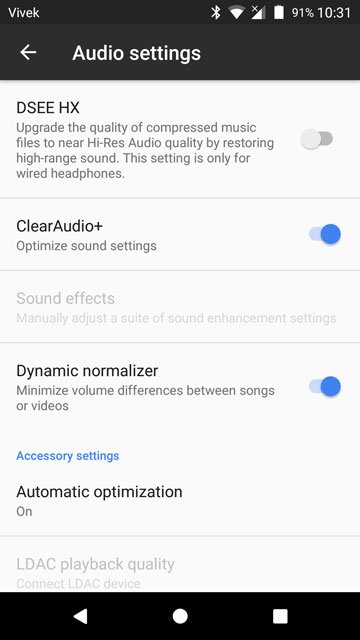
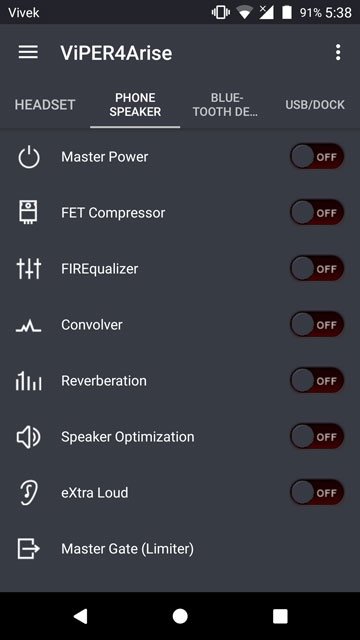
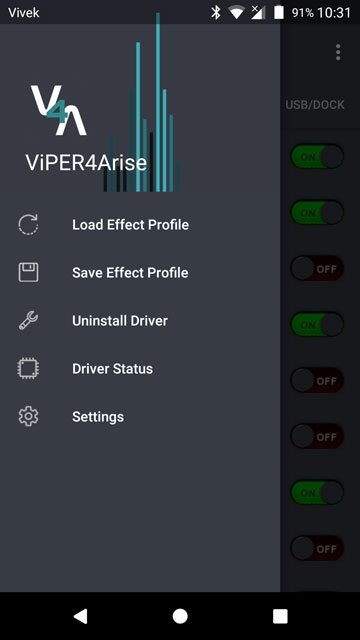
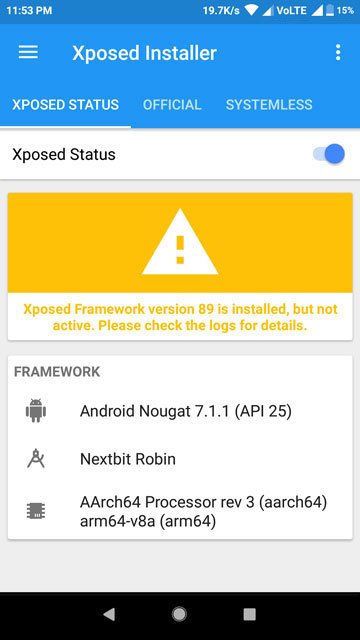

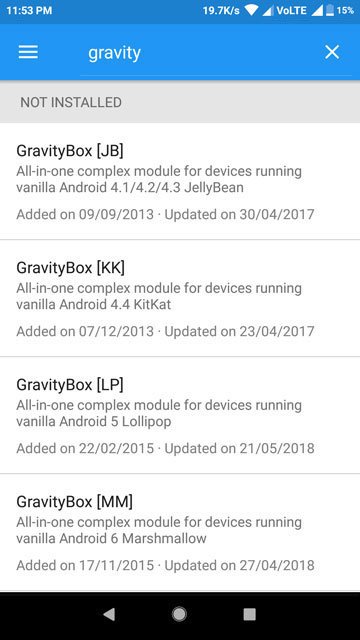

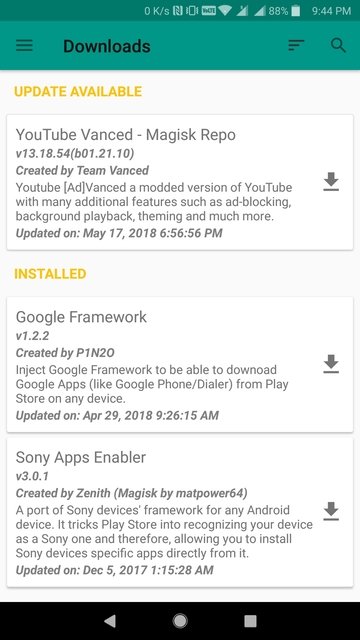
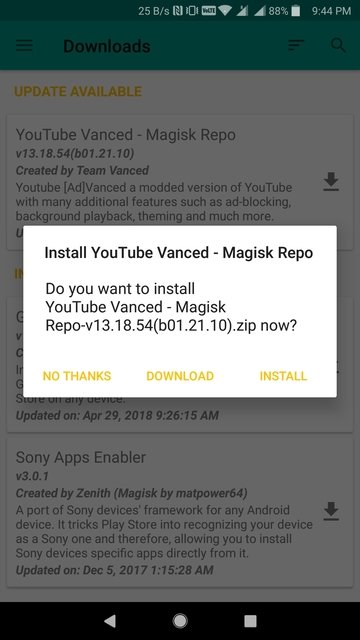
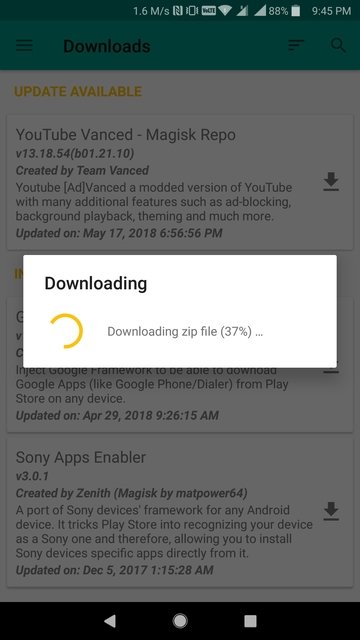
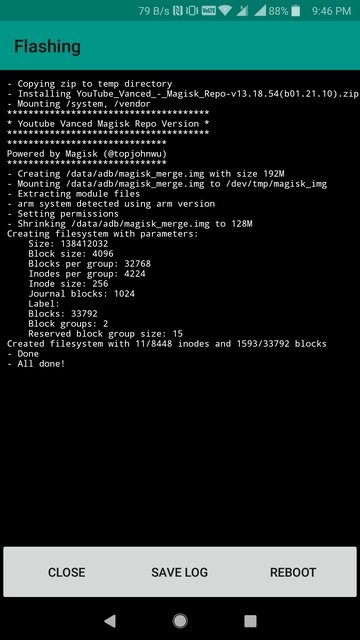


Join The Discussion: